Q&A: Brian Richter and Frederick Kaufman on Market-based Water Pricing
Would giving water a price help to limit its demand or would this invite abuse against what the United Nations has called a basic human right? Circle of Blue spoke with Brian Richter, of The Nature Conservancy, and Frederick Kaufman, a journalism professor and an author, about their opposing viewpoints.
Water management and water scarcity are ever-evolving issues that highlight the need for new solutions and ways of thinking. One alternative model that is gaining attention — particularly in Australia — is the use of markets to balance the supply and demand of water through price. Economists, academics, businesses, and political leaders rank among the many supporters of such a market-based solution for water management. They are contested, however, by a contingency of opponents who argue that market volatility is a danger and that water pricing is an ostensible solution.
Circle of Blue had the opportunity to ask experts on both sides of the debate about the potentials and pitfalls of water pricing. The following excerpts are of separate interviews on the topic of market solutions to price water with Brian Richter, co-leader of freshwater strategies at The Nature Conservancy, and Frederick Kaufman, a journalism professor at City University of New York and the author of Bet The Farm: How Food Stopped Being Food. We present these opinions side by side to show the contrast between the reasons and experiences that inform the differing viewpoints.
But in our modern society, unfortunately, particularly in urban settings, we’re so disconnected from where that water comes from that people don’t connect those dots, they don’t understand that their water use is actually having an adverse impact on something like the fish in their local river. The Nature Conservancy did a poll last year: around the order of, I think it was 77 percent of Americans have essentially no idea where their water comes from. It just gives you some evidence to the point that I’m making, which is: if you don’t know what the impacts are of your resource use, then you likely don’t have much motivation to change your behavior for your consumption of that resource. So, if you don’t have that kind of connection, then what other kind of connection do you have to control human behavior? And you can boil that down to cost. So that’s kind of the conundrum I think we’re in.
I think there is a real — that there is a humanitarian — end to this. So that if you start pricing water and you start seeing spikes and volatility in the price of water, you’re going to see, really, billions of people suffering. And I think there are probably better ways and other ways for people to understand scarcity; other ways and better ways for them to save water and reserve water than simply a price. A price is such a basic thing, and a price can be exploited and subverted so easily. There will be a sense that you can start searching for water as large industrial venturers do for gold and for other precious resources, or for oil, obviously. So what’s going to happen are a lot of people — who might be living on land that’s traditionally been theirs and they have traditionally farmed — all of the sudden, they find that the governments have sold the water right out from under them. This is already happening. This is happening now. It’s happening all over the world, most notably in Africa.
If water were actually given a very specific price on an exchange, we would see even greater activity in the sector, and so the global land grab and water grab — which is already causing so much misery — would only be given more force and impetus.
One of the real knee-jerk reactions, adverse reactions, to the idea of changing the price of water or increasing the price of water is that it will harm people that have difficulty in affording the water. And that is absolutely the case; that is absolutely an issue that has to be addressed when we have these considerations. But, there are ways of addressing that; there are ways of getting around that. You can set a different price structure to, in essence, subsidize and keep the price low and affordable for the portion of the population that that is going to be a hardship for. So when I talk about the need to raise prices — in the way that I think about it — I’m always thinking about making sure that you are addressing the potential for that there exists some portion of the population that this is going to create a hardship for. We need to address that. We need to address that explicitly, and we need to address that head-on. The other part that I think is a given is that, in any system like this, you have to be ensuring that enough water remains in the natural system: you know, the freshwater sources, how do you sustain their health?
–Brian Richter
So those two things — social equity, or the social considerations, and the environmental considerations — are always part of the baseline. But the question then is for the water that is available for use in a discretionary way or available for use in commercial purposes. And that sort of thing, we want that water to be managed well; we want it to be used as conservatively as possible; we want it to be used as productively as possible. So yes, different businesses are going to use water, and they are going to make a profit from the using of the water, and I don’t think that that’s necessarily a bad thing at face value — I mean, it is a part of the global economy.
And to say that companies are profiting off of the use of the water: well, we profit off of the use of a lot of resources. And I don’t think that there is, given those previous considerations — the social considerations and the environmental considerations — I don’t think that it necessarily should be thinking of water in any critically different way from the way that we think about the use of other resources: timber resources and others. So yes, the companies are going to continue to make profit through the use of water. And that is a reality. And that is kind of what I see driving the economy, is their ability to do that.
In the case of water in almost all cases that I’m aware of anywhere around the world, corporations cannot actually own the water itself. They can own the right to use the water, but the government ultimately retains ownership of the water, and the government issues permits or rights to companies and to individuals to use the water. And so — to the effect that there isn’t property involved — it’s actually the right to use, which can be taken away by the government. That’s not to say that you can’t make, or that there aren’t some places where you can’t make, money off of buying and selling water rights: there are some places in the world where you can do that, but that is ultimately the government who has the ownership of the water.
But the case that I think is a really legitimate concern: when people talk about [places where] privatization is introduced, what that usually refers to in a situation is where the government is a public entity and is contracting with a private company for the distribution of water to companies and to homes and businesses. They are not actually selling the water itself: they are not giving the water away to the companies. They’re contracting for the service of distributing the water to people who want it. One of the biggest problems is that the private company — some of those private companies — will raise the rate of their service so high that it puts the poorer portion of the population, in some countries a large portion of the population, in a real hardship because of the price of the water.
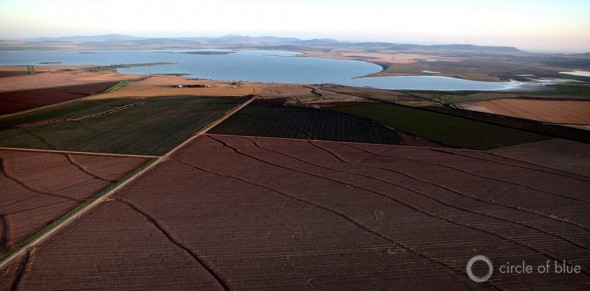
In my mind, here’s the danger of water futures. Being introduced at this point in the history of commodity markets, which is that this is a real transition point in commodity markets, just as it is a transition point in the global economy — commodity markets [have] worked really well since they were created in their modern form after the Civil War: the American grain markets were the first financial derivative product, and they really did what they were supposed to do, for the most part, which is to help hedgers and speculators discover price and manage risks, and that’s what those markets are actually supposed to do. [But] for various reasons — technical reasons, global economic reasons, all sorts of reasons, de-regulatory reasons — those markets were transformed, shifted, in the period: really post-financial meltdown, in 2008. And now we’re looking at a very different beast with very different players in very different ratios.
–Frederick Kaufman
And so, on the one hand, there is a valid reasoning that, if we were to commodify water, we actually might help stabilize this product — which I think is right — and help market forces steady it. However, that shows a real, I think, almost willful ignorance of the state of our commodity markets today, which are highly volatile and 4/5 controlled by speculation.
What I argue in my [recent Nature] article is that now is not the best time to start a water futures market. We have to stop it before it starts, because, once it starts, it’s very hard to stop. And we can see that in the $US 648 trillion global derivatives business, which is, I think, that everybody perceives that it went out of control. And I think everybody now is beginning to understand how hard it is to bring it back under control — we can even see how hard it is to get bankers out of the food supply, which was the topic of my most recent book.
Through the experience that I have gone through over decades of working on water issues, I don’t come to an economic solution naturally, or even comfortably, but I have always stayed very intensely focused on the problem as I perceive it, which is governments aren’t doing an adequate job of controlling the use of water. And, by the way, even in the places that are, [the places] that you think are doing the best job, like even individual states within the United States, almost none of them — there are a couple states that are doing a pretty good job — but almost none of the states in the United States are adequately protecting what we call “environmental flows.” We aren’t managing water in a way that allows sufficient water to remain in the rivers and the streams to be able to adequately be able to protect their ecological health. And, in some cases, they make no attempt at that whatsoever.
And it’s not a problem for everywhere in the the world: we’ve been doing a lot of global analysis on water shortages, on water scarcity, and it’s a serious problem in a pretty small fraction of all the world’s watersheds — maybe something around the order of 15 to 20 percent of watersheds are really experiencing these problems of true water shortage, where we’re using the water resource to the point where we’re drying it up or depleting the aquifer. So it’s a small percentage. But in those places, we just don’t see too many effective solutions being implemented. So we really have to come up with a solution; so we have to try something new.
To find more articles and broadcasts on water policy, pricing, and related issues, be sure to tune into Circle of Blue online at 99.198.125.162/~circl731. These interviews were performed and produced by Allison Voglesong.
is an editorial intern for Circle of Blue based out of Traverse City, Michigan. She holds a BA in International Relations from Michigan State University’s James Madison College. Her interests include water pricing, environmental economics and policy, and conflict mediation.




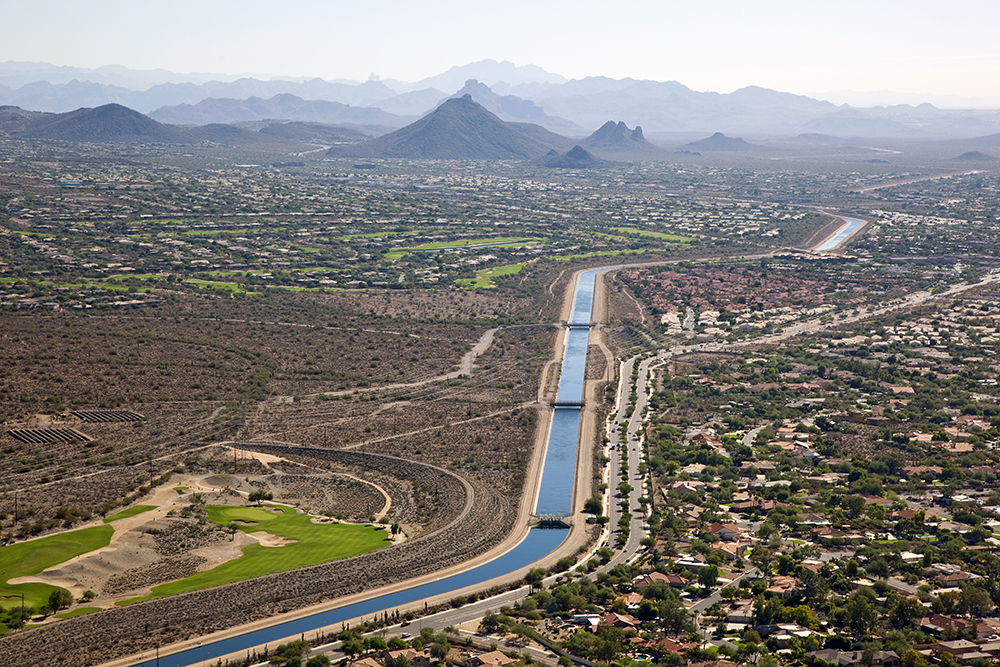
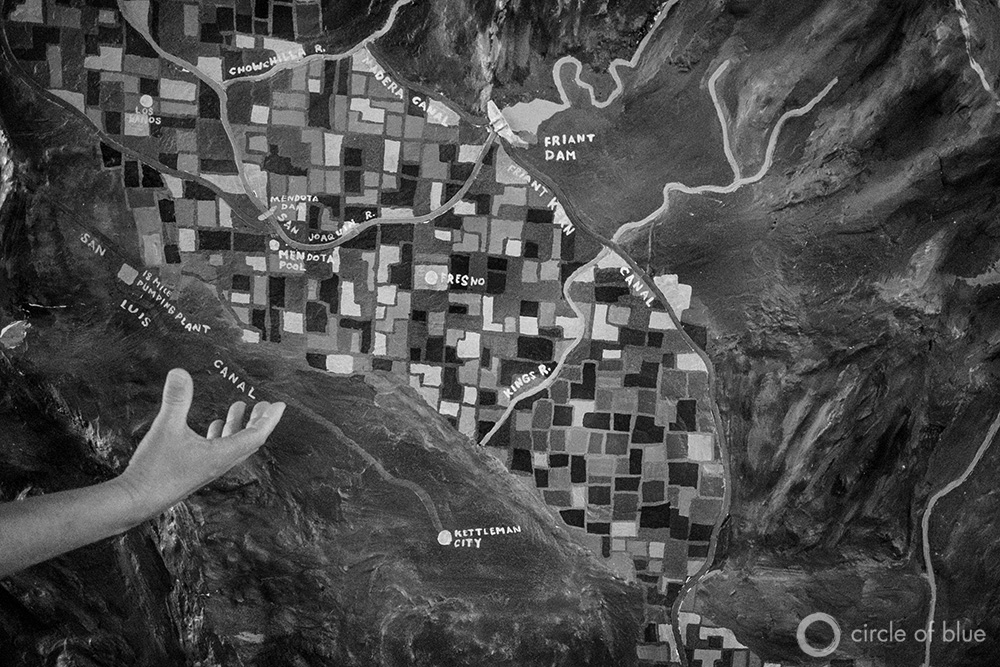

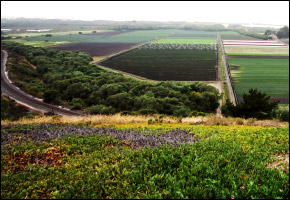


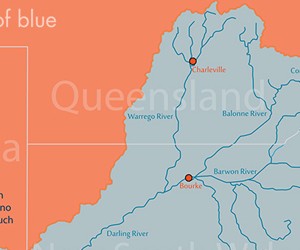
As Chief Executive Officer of the New South Wales (Australia) Irrigators Council (a policy and advocacy group), I was intrigued to read the headline. I was unsurprisingly expecting a story that delved into Australia’s several decade long water market history. I was disappointed, then, to find the two “experts” being US based, not mentioning Australia and relying on theoretical argument rather than practical example.
Australia’s water market has worked extremely well for all involved – irrigators, government, environment. Opponents are a very small minority.
If, after reading this story, you’d like a better understanding or water markets please feel free to visit our website (www.nswic.org.au) or get in touch with us (contact details on website).
Mr. Gregson, thanks for your input! This Q & A was intended for juxtaposing two opposite viewpoints in one consolidated place. It seems you were expecting an in-depth article about Australia’s water markets, and you’re in luck, because my colleague Andrew Maddocks has written a piece entitled “Australia’s Water Markets Succeed Yet Severe Challenges Loom”.
Thank you for your comments and feedback, which are crucial for the continuous improvement of our work and the enrichment of our audience.